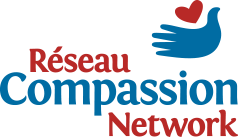“What do our callers need? They just want to talk to someone who cares.”
David Stewart, one of the Managers of Mental Health and Addiction Services at Sara Riel, is passionate about the Seneca Warm Line, a 24-hour peer support telephone service. “Before the pandemic, we operated evenings only,” he explains. “Now that we’re 24 hours, we’ve received over 8,500 calls since April. And that’s what people are telling us: they want to have a conversation with someone who understands how they’re feeling.”
The peer support line is a legacy of Seneca House. Sara Riel took over operations of the program in 2014, including the Warm Line and the peer-supported respite program. When Covid-19 hit and the respite program had to close temporarily, staff were redeployed to the Warm Line, which meant an expansion of its hours. Funding from the United Way has ensured the line can stay open 24 hours a day until at least the end of March, 2021.
“People who are isolated are counting on us,” continues Stewart. “This pandemic is exacerbating the loneliness and fear that many people live with every day. For those who don’t have TVs, smartphones or the internet, we provide peer support, but we’re also helping them understand what’s happening with health orders. Our service is vital to so many people.”
The Warm Line’s goal has always been to provide those who are struggling with a safe place to talk. They speak with caring and compassionate staff who have lived experience with mental health or addictions issues. “Our peer support workers are exceptional,” says Stewart. “We don’t counsel, but we provide support and resources. Our workers let the conversation go where it needs, but they also help steer people away from cycling into unhealthy thoughts. We want these conversations to be focused on what we can do to move forward.”
Stewart speaks about the Seneca Line with pride and a sense of urgency; the expansion of this program to 24 hours has been hugely impactful for those relying on it and he wants to ensure it’s able to keep going past Covid-19. “Our callers trust us, and they need us. Some people call us every day and now they’re calling with successes instead of crisis. They are getting what they need and using their own agency. It’s so powerful, what connection can do.”
What have Stewart and his team learned in this transition to an all-day format? The supports that exist currently through agencies and programs are going a long way, but there was still a gap. “With the ability to connect to other supports more difficult now, we provide someone friendly who’s just there to talk,” he says. “People are wanting further connection. It’s a basic human need that will extend well past this pandemic.”

